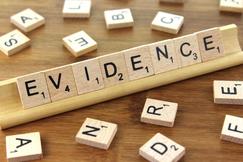
In an entertaining and insightful article in Explore in 2016, Larry Dossey, MD, addresses why more knowledge does not necessarily mean better decisions. Here are several reasons why changing opinions might be difficult:
- Backfire. We form opinions from our beliefs, accepting evidence in agreement with those beliefs. This is known as confirmation bias. Backfire is confirmation bias in the extreme: Our opinion is proven wrong but we become more defensive and stick to our beliefs, arguing even more strongly for them. Instead of the evidence, the boss becomes even more entrenched.
- “I know I’m Right” Syndrome. Sometimes those who are most confident in their beliefs are the least informed. Research suggests they are also the least likely to accept new evidence.
- Insecurity. The more people are threatened by new evidence, the less likely they are to accept it.
- Negativity bias. In general we pay more attention to negative events than positive ones. Some of us pay a lot more attention to the negative and have a high negativity bias. People with a high negativity bias are more suspicious of new evidence and less likely to accept.
- Neophobia. Some people are fearful of anything new. Studies using rats have found “fearful” rats do not live as long as “brave” rats.
Dossey concluded: “Adhering to factual evidence and truth is not easy; the hidden persuaders are powerful, and it’s certain that all of us will occasionally succumb to them to some degree.” (p. 299)
My take-aways:
1. It’s a perceptual world. Usually evidence has to be interpreted. What does it mean? It is here leaders need to be open to different interpretations and not fall prey to biases such as those mentioned by Dossey.
2. Leaders should strive to be open-minded. This may be hard. On the path to leadership some things worked and others did not. It is easy to assume the things that worked always work. Be open and actively listen.
3. There are numerous problems we face in making decisions, some of which are inherent in how our mind processes information. To understand natural biases that arise out of how our minds work, I highly recommend Daniel Kahneman’s Thinking, Fast and Slow.
Larry Dossey (2016). Compasses, craziness, and the thieves of reason: How thinking goes wrong. Explore, 12(5), 295-301.
Image, "Evidence" by Nick Youngson.
Retrieved from: http://www.thebluediamondgallery.com/wooden-tile/e/evidence.html
Used with permission: https://creativecommons.org/licenses/by-sa/3.0/
© John Ballard, PhD, 2017. All rights reserved.
Author of Decoding the Workplace, BEST CAREER BOOK Next Generation Indie Book Awards 2016, now with free resources at www.decodingtheworkplace.com
_________________________
"Decoding the Workplace: 50 Keys to Understanding People in Organizations is as informed and informative a read as it is thoughtful and thought-provoking. . . Decoding the Workplace should be considered critically important reading for anyone working in a corporate environment." —Midwest Book Review
 RSS Feed
RSS Feed